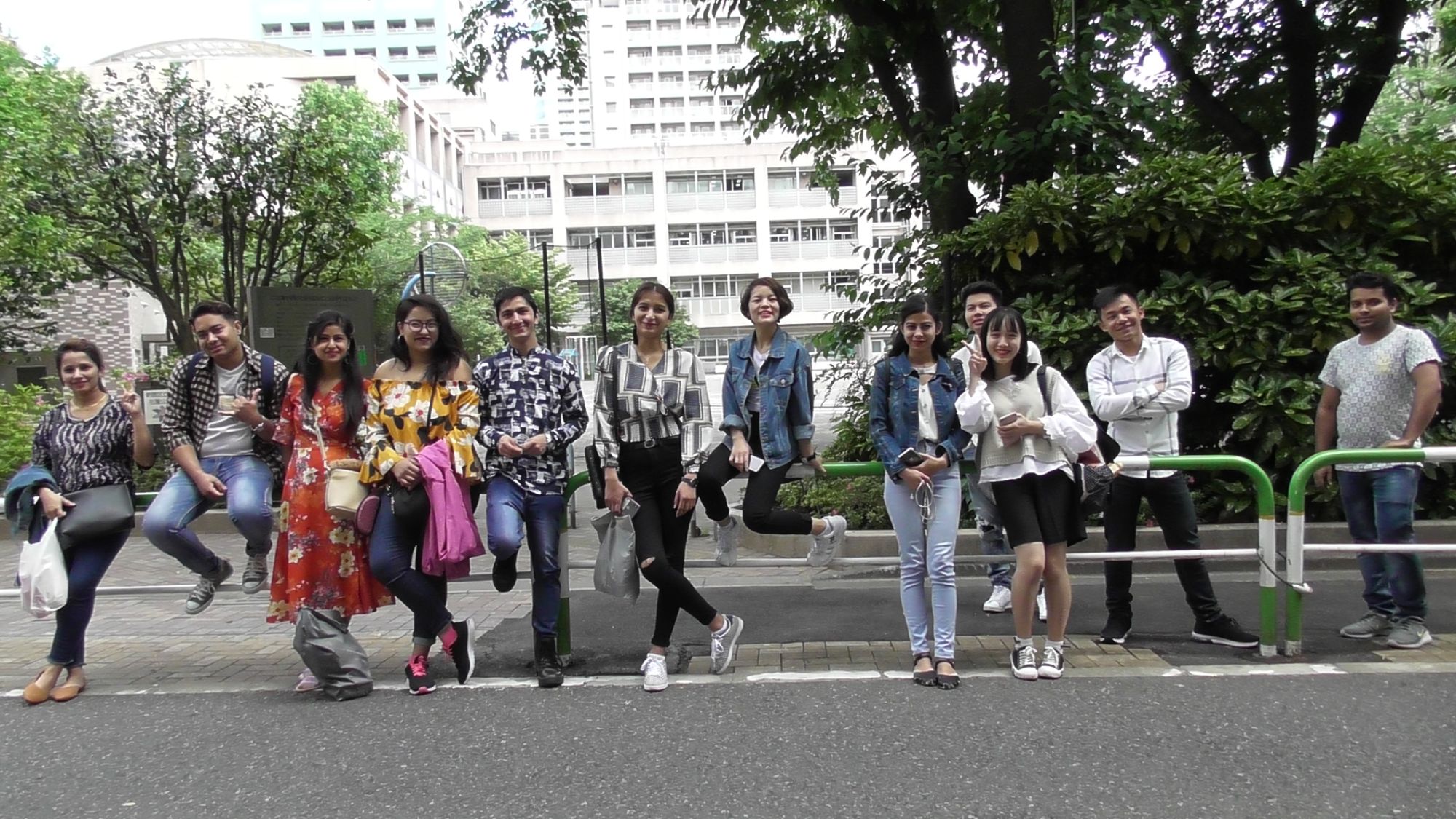You will have great potential if you carefully check the conditions for studying in Japan and decide on your own course. The following basic information provides a frame for your consideration and TKG will provide the appropriate support to carry out your plan.
Basic knowledge for studying in Japan
Understand the situation in Japanese society and think about how you can maximize your chances of studying in Japan!
Current situation in Japan
Japan is one of the world's economic powers and has abundant social infrastructure.
Japan faces a crisis of rapidly declining birthrate and aging population, and the worker shortage.
Economic globalization is promoting the multinationalization of human resources in Japan.
Various industrial sectors, especially cutting-edge fields, need global talent for future development.
Benefits of studying in Japan
High-quality education systems are in place.
Various industrial sectors are looking for overseas human resources, and the situation is bringing abundant employment opportunities.
Students can concentrate on studying in the well-organized and safe social environment.
Students can get social experience from everyday life and part-time jobs during school days.
What to study while studying in Japan
Japanese language proficiency for expressing various concepts and discussing deeply.
Recognizing the Japanese cultural background for mutual understanding.
Attitude to carefully observe various cultures and your own culture.
Cultivating your special skill corresponding to real society.
Prerequisites for your goal setting
The goal of most international students is to go to a higher education institution or to get a job at a Japanese company. You should understand the conditions for reaching the goal and consider what preparations you need to make.
Case of going to a Japanese university or college
You must have completed 12 years of regular school education in your home country.
Japanese Language Proficiency Test N2 level or higher is required for admission.
Japanese universities respect basic education of liberal arts and fundamental research rather than vocational training.
Japanese colleges focus on vocational training and emphasize student employment support.
Many international students first enter a Japanese language school to improve their reading, writing, and conversation for the entrance exam of university or college.
Many of the students work hard in job hunting in the final year of university or college and decide on a job.
Case of aiming for a job in Japan
Getting a working visa generally requires a bachelor's degree in your home country or college graduation in Japan as the minimum line of the academic qualification.
Japanese immigration bureau examines coherence between the major you have studied at the higher education institution and the job you will get.
Most Japanese companies require JLPT N2 or higher Japanese proficiency, but there are exceptions, such as advanced IT engineers.
International students can often take part in job fairs and internships, especially in metropolitan areas.
Studying at a Japanese language school in Japan is the best period of cultural adaptation before employment.
From 2019, a new visa status "Specific Skilled Workers” has started to allow employment in industrial fields suffering worker shortage regardless of an applicant's educational background.
Eligibility criteria for entering a Japanese language school in Japan
The Japanese Language School functions as a preparatory institution for your taking steps toward the goals mentioned above in Japan. You need to apply for your foreign student visa (certificate of eligibility) about half a year before the time of school entrance. Our Japanese language school office staff will take care of the applicant’s procedure at the Tokyo Immigration Bureau. Documents to be submitted differ depending on nationality, but the following conditions are common requirements.
Japanese language proficiency
Japanese Language Proficiency Test N5 equivalent level or 150 hours Japanese language class lesson completion are required as proof of minimum communication ability to start life in Japan.
An oral interview may be held before issuing a student visa at the Consulate-General of Japan in your home country.
Economic conditions
Your financial supporter needs to prove the savings amount is 2 million JP yen or more as funds for your study in Japan.
A letter signed by your financial supporter is required as a guarantee of funds for your study in Japan.
Certificates required to be submitted for the immigration bureau must be official documents with the contact information about the issuer and the name of the person in charge.
Motivation and purpose
Properly explaining your motivation and purpose of studying in Japan is an important requirement for foreign student visa qualification examination.
Your motivation and purpose must clearly state the meaning of Japan for your future plan.
If you are interested in studying in Japan, please refer to the course guide on the main page of this site. Our office will provide more detailed information on admission and visa application. So please contact us from the contact section at the bottom of the main page.
The Japanese Language Proficiency Test is the most commonly spread test for evaluating the level of Japanese language proficiency. This is a test primarily to measure linguistic knowledge level mainly for reading and writing, and does not assess oral communication skills. It is widely adopted as a standard for visa certification, admission to educational institutions, and recruitment of companies. Please refer to the judgment index of the Japanese Language Proficiency Test from the link below.
N1~N5: Summary of linguistic competence required for each level
https://www.jlpt.jp/e/about/levelsummary.html
